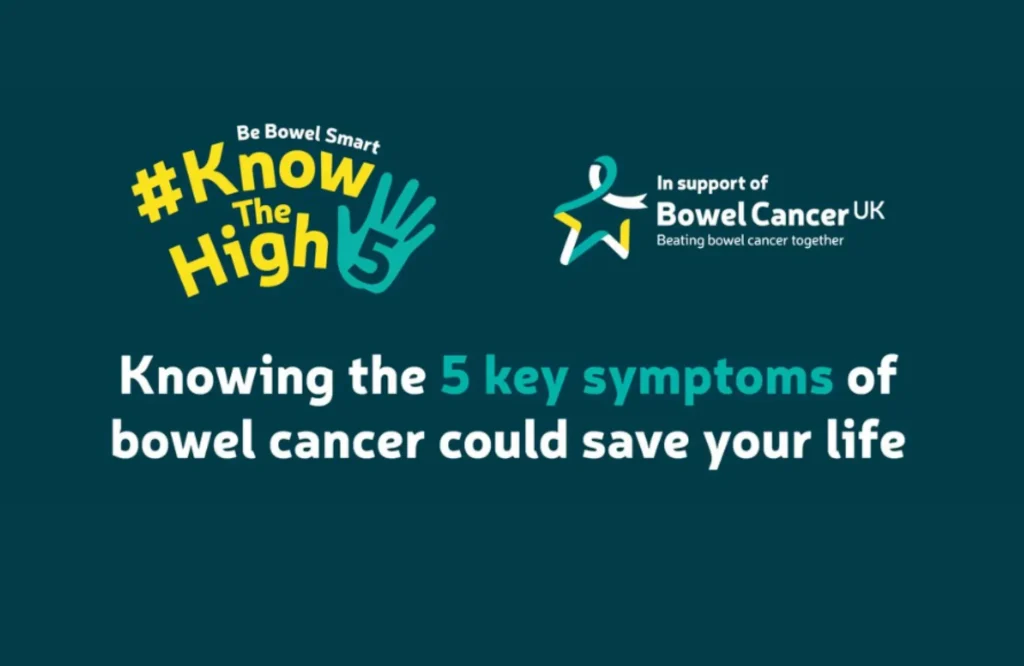Bowel cancer awareness is crucial, especially in light of the alarming rise in cases among young adults. Every year, thousands are diagnosed with this aggressive disease, and recognizing the bowel cancer signs early can be life-saving. Symptoms such as rectal bleeding, abdominal discomfort, and changes in bowel habits are often misattributed to less serious ailments, leading to delayed diagnoses. It’s vital to break the stigma surrounding discussions of bowel health and ensure that cancer prevention tips reach all age groups. Initiatives like bowel health campaigns aim to educate the public about the importance of monitoring their health and seeking prompt medical advice if concerning symptoms arise.
Understanding bowel cancer, also known as colorectal cancer, is becoming increasingly important as more young individuals face this diagnosis. The disease manifests through a variety of symptoms, including blood in stools and unexplained weight loss, often mistaken for consequences of stress or dietary changes. Such misconceptions can result in delayed treatment, emphasizing the need for increased awareness among young adults specifically. By promoting awareness around the critical indicators of bowel health, we can motivate individuals to prioritize their well-being and take proactive steps towards prevention and early detection. Enhanced dialogue surrounding these health issues is imperative to dispelling myths and fostering a culture of open conversation.
Understanding Bowel Cancer Symptoms
Recognizing the symptoms of bowel cancer is crucial for early detection and effective treatment. Common signs such as irregular bowel movements, cramps, and unexplained weight loss often go unnoticed or are dismissed as minor issues. However, rectal bleeding is a significant warning sign that should never be ignored. It’s important to note that bowel cancer can present itself in a variety of ways, and some patients, like Chris Kirt, experience painless rectal bleeding, which can make the situation even more alarming and confusing.
Health professionals emphasize the need for awareness about these lesser-known symptoms. Regular check-ups and open conversations about bowel health can help save lives. Young adults, in particular, must be educated on the importance of advocating for their health, as bowel cancer is increasingly diagnosed in this age group. Awareness campaigns aimed at younger audiences can foster discussions that help demystify these symptoms and encourage individuals to seek medical help promptly.
Bowel Cancer Awareness Campaigns for Young Adults
Bowel cancer awareness campaigns specifically targeting young adults are crucial in preventing late diagnoses and improving health outcomes. With cases on the rise among younger individuals, these campaigns must work to engage this demographic through social media and community outreach. By initiating conversations around bowel health, they can eliminate stigma and encourage early medical consultations when warning signs like rectal bleeding appear.
The role of digital platforms is especially significant in these campaigns. Success stories, educational content, and engaging visuals can attract a younger audience’s attention and emphasize that bowel cancer is not just a concern for older adults. Incorporating testimonies from survivors like Chris Kirt can create a relatable narrative that inspires peers to be more proactive about their health and to advocate for themselves if they experience symptoms.
Key Bowel Cancer Signs Not to Ignore
Awareness of bowel cancer signs is vital for early detection and treatment. Symptoms such as rectal bleeding, abdominal pain, and changes in bowel habits should prompt immediate medical attention. Many people, including young adults, may overlook these signs due to a lack of knowledge or fear of seeking help. Chris Kirt’s experience is a poignant reminder of how vital it is to take these symptoms seriously, especially when they deviate from the norm.
It is essential for individuals to understand that the presence of blood during bowel movements, even without accompanying pain, can be a serious indicator of potential cancer. Campaigns addressing bowel health must focus on raising awareness about all symptoms, reinforcing the message that no symptom is too small to warrant a doctor’s visit. Ignoring warning signs can lead to delays in diagnosis, increasing the risk of complications.
The Impact of Lifestyle Choices on Bowel Health
Lifestyle choices play a significant role in the risk of developing bowel cancer. Factors like diet, physical activity, and obesity have all been linked to an increased risk of this disease. High fiber diets rich in fruits and vegetables can reduce the risk, while processed foods and low physical activity levels may contribute to a higher likelihood of developing cancerous conditions. Chris Kirt’s journey highlights the importance of maintaining a healthy lifestyle to mitigate these risks, particularly among young adults who often think they are invulnerable.
Experts highlight that lifestyle-related factors are increasingly relevant, especially with the trend of rising bowel cancer cases in younger populations. Engaging in preventative behaviors—such as regular screenings and maintaining a healthy weight—can significantly decrease cancer risk. Educational efforts must underscore these relationships while providing cancer prevention tips that resonate with younger audiences, thus promoting better overall bowel health.
Promoting Early Screening for Bowel Cancer
Early screening for bowel cancer is essential in reducing mortality rates. Currently, screening programs typically start at age 50, but many experts, including advocates like Chris Kirt, argue for lowering this age due to increasing cases among young adults. By promoting early screenings and making them more accessible, we can catch potential cancers at a more treatable stage, helping to save lives and alleviate the burden of this disease.
Campaigns advocating for changes to screening age and frequent testing for high-risk individuals are vital. Education about the importance of early detection can empower younger patients to seek medical advice if they experience alarming symptoms. Utilizing testimonials and personal stories from survivors can foster engagement and resonate with the younger demographic—highlighting the life-saving impact of early intervention.
Understanding the Link Between Obesity and Bowel Cancer
Research indicates a strong link between obesity and an increased risk of developing bowel cancer, particularly in young adults. With the obesity epidemic on the rise, lasting health implications can include a spike in cancers associated with being overweight. Current statistics show that obesity accounts for a significant percentage of bowel cancer cases, stressing the need for awareness of this correlation in the context of public health.
Educational initiatives should aim to inform young adults about the risks associated with obesity, particularly how lifestyle choices today can affect their long-term health. Discussions on healthy weight management, balanced diets, and physical activity can play a foundational role in reducing the likelihood of bowel cancer, enabling individuals to take control of their health outcomes through informed choices.
The Importance of Patient Advocacy in Bowel Cancer Awareness
Patient advocacy is crucial for raising awareness about the realities of bowel cancer, particularly in marginalized demographics such as young adults. Individuals like Chris Kirt, who have lived through the challenges and fears associated with a diagnosis, become powerful voices in the call for policy changes regarding screenings and awareness campaigns. By sharing their stories, they inspire others to be advocates for their own health and can effect substantial change in health policies.
Encouraging advocacy among patients not only empowers individuals but leads to systemic improvements in healthcare regarding bowel cancer. Initiatives that prioritize patient voices can drive the conversation forward, ensuring that health systems are more responsive to the needs of all demographics, particularly those historically neglected, such as younger patients.
The Future of Bowel Cancer Research and Treatment
The field of bowel cancer research is evolving, focusing on understanding the genetic and environmental factors contributing to rising cases among young adults. Tailoring treatment and prevention strategies to fit the unique demographic characteristics of younger populations is crucial. Continued research into these areas can lead to breakthroughs in treatment options, screening methods, and lifestyle interventions that significantly improve outcomes.
The future of bowel cancer awareness must also include comprehensive outreach and education strategies that address the needs of younger patients. Modernizing treatment protocols and encouraging research about the effects of environmental factors on bowel health will be essential in combatting this escalating issue. Empowering young adults with knowledge and resources can help create a future where bowel cancer diagnoses are reduced and managed more effectively.
Mobilizing Community Support for Bowel Cancer Patients
Community support plays a vital role in the experiences of bowel cancer patients, particularly young individuals. Establishing support networks that provide emotional and informational resources can help alleviate feelings of isolation and fear. Initiatives that promote group discussions and sharing of experiences can empower patients like Chris Kirt to advocate for their health while raising awareness about the challenges faced by younger individuals battling this disease.
Engaging communities in bowel cancer awareness campaigns encourages collective responsibility for health. Workshops and social events designed to educate the public about symptoms and the importance of early intervention can foster a culture of support and education. As communities come together to advocate for better services and awareness, they enhance the overall fight against bowel cancer, ensuring that no one faces their diagnosis alone.
Frequently Asked Questions
What are the early signs of bowel cancer that everyone should be aware of?
Early signs of bowel cancer may include irregular bowel movements, rectal bleeding, abdominal pain, unexplained weight loss, and extreme fatigue. It’s essential to be vigilant about these bowel cancer signs and consult a healthcare professional if you notice them.
Is rectal bleeding always a sign of bowel cancer?
No, rectal bleeding is not always indicative of bowel cancer; it can result from other conditions like hemorrhoids or anal fissures. However, if you experience rectal bleeding, especially without pain, it is crucial to seek medical advice as it can be a bowel cancer sign.
How is bowel cancer affecting young adults, and what should they know?
Bowel cancer is increasingly being diagnosed in young adults, with cases rising alarmingly. Young individuals should be aware that they are not exempt from this disease. Knowing the symptoms, such as rectal bleeding and changes in bowel habits, is critical for early detection and intervention.
What is the purpose of bowel health campaigns in preventing cancer?
Bowel health campaigns aim to raise awareness about bowel cancer symptoms, promote early screening, and educate the public on risk factors and prevention tips. These initiatives are vital for encouraging discussions about bowel health and fostering timely medical consultations.
What cancer prevention tips are recommended for reducing the risk of bowel cancer?
To reduce the risk of bowel cancer, consider the following cancer prevention tips: maintain a healthy weight, engage in regular physical activity, eat a balanced diet rich in fruits, vegetables, and whole grains, limit processed meats, and avoid tobacco and excessive alcohol consumption. Regular screenings are vital for early detection.
| Key Point | Details |
|---|---|
| Diagnosis Age | A father of three diagnosed with bowel cancer at age 31. |
| Symptoms | Initial symptoms included irregular bowel movements, stomach cramps, and the key symptom of painless rectal bleeding. |
| Delayed Diagnosis | Due to waiting lists, Mr. Kirt opted for private health insurance to speed up the colonoscopy. |
| Awareness Campaign | Mr. Kirt advocates to lower the screening age and engage younger audiences in bowel cancer discussions. |
| Statistics | 44,100 new cases in the UK annually, with rising cases among younger people linked to obesity and environmental factors. |
Summary
Bowel cancer awareness is crucial, especially as cases in younger individuals rise. Chris Kirt’s experience underlines the importance of recognizing the symptoms, such as painless rectal bleeding, which should not be dismissed. Early diagnosis and proactive health advocacy can make a significant difference in treatment outcomes. It is vital that we continue to promote education and open discussions around bowel health, ensuring that no one, especially young individuals, overlooks the signs of this aggressive disease.



